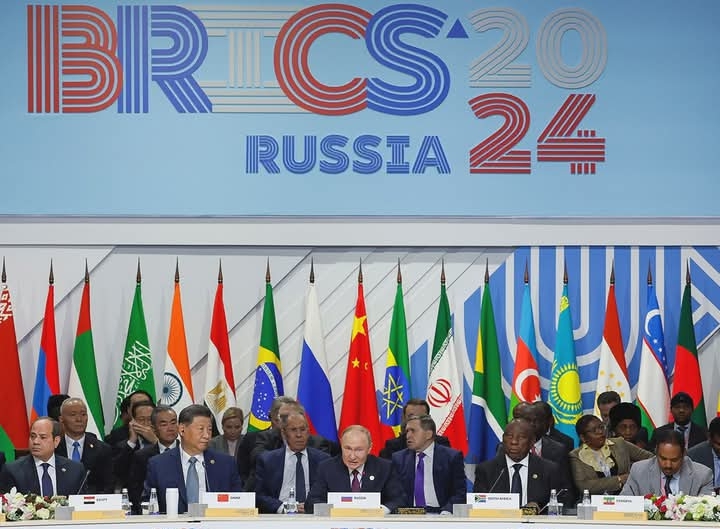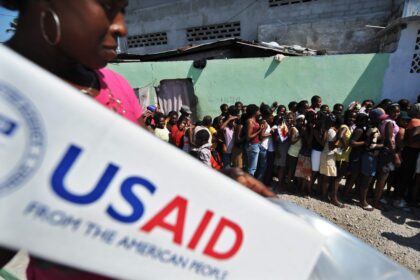By Adeyemi Adekunle
Nigeria has been admitted as a “partner country” of the BRICS bloc of emerging economies, marking a new chapter in the country’s quest for greater influence on the global stage. Announced by Brazil, the current chair of BRICS, this development solidifies Nigeria’s position as a strategic player in the Global South and highlights its potential in reshaping international governance.
Initially formed in 2009 by Brazil, Russia, India, and China—and expanded in 2010 to include South Africa—BRICS was established as an economic and political counterbalance to the Group of Seven (G7) leading industrialized nations. Over the years, the bloc has steadily grown, most recently admitting countries like Iran, Egypt, Ethiopia, and the UAE. Now, Nigeria joins as the ninth partner country, sharing this status with Belarus, Bolivia, Cuba, Kazakhstan, Malaysia, Thailand, Uganda, and Uzbekistan.
The Brazilian government, in its announcement, highlighted Nigeria’s significant contributions to regional and global dialogues. “With the world’s sixth-largest population—and Africa’s largest—as well as being one of the continent’s major economies, Nigeria shares convergent interests with other members of BRICS,” the statement noted. Brazil also emphasized Nigeria’s active role in South-South cooperation and its commitment to global governance reform—objectives central to the bloc’s agenda.
For Nigerians, this news has been met with mixed reactions, ranging from optimism about the opportunities it presents to skepticism over how well the nation can leverage this position. John Okonkwo, a financial analyst based in Lagos, described the move as “a game changer” for Nigeria’s economic and geopolitical ambitions.
“Being associated with BRICS as a partner country gives us access to a network of some of the most dynamic emerging markets. This opens doors for investments, technology transfer, and even educational exchanges,” he explained. “But the government must be ready to translate these opportunities into tangible benefits for ordinary Nigerians.”
Chinwe Abiola, a small business owner in Abuja, was similarly optimistic but voiced concerns about the nation’s preparedness. “We need better infrastructure, clear economic policies, and a focus on improving governance if we are going to benefit from this new status. Otherwise, it will be like the African Continental Free Trade Agreement—promising on paper but not felt by the average Nigerian,” she said.
Others see the partnership as a chance for Nigeria to reposition itself on the global stage. Ibrahim Musa, a university lecturer in Kano, noted that the inclusion underscores Nigeria’s growing influence in international politics. “This is not just about economics; it is also about diplomacy,” Musa explained. “Being part of BRICS in any capacity signals that Nigeria is seen as a leader not just in Africa, but in global affairs.”
One key aspect of Nigeria’s inclusion is the opportunity to benefit from BRICS’ collective push for an alternative payment system to challenge the dominance of the U.S. dollar. The bloc’s leaders have been vocal about introducing financial mechanisms that reduce dependence on Western-dominated systems. Former U.S. President Donald Trump’s threat of 100% tariffs against BRICS if they act to undermine the dollar further highlights the stakes involved.
For Nigeria, this could mean greater financial autonomy. “Access to non-dollar-denominated trade could help stabilize our foreign reserves and reduce the vulnerability of our economy to external shocks,” said Professor David Olumide, an economist at the University of Ibadan. However, he cautioned that for these benefits to materialize, Nigeria must address its domestic economic challenges, including rising inflation and fiscal instability.
But not all Nigerians are convinced. “Our leaders have a way of squandering opportunities,” lamented 25-year-old tech entrepreneur, Zainab Ahmed, from Kaduna. “Being part of BRICS is exciting, but how do we ensure transparency in any partnerships or projects that come from this? If corruption continues to thrive, this might just be another missed opportunity.”
Nigeria’s admission into BRICS also has implications for Africa as a whole. Until now, South Africa was the only full member from the continent, shouldering the burden of representing Africa’s diverse perspectives within the bloc. With Nigeria joining the conversation as a partner country, there is hope that African issues, particularly trade, security, and sustainable development, will receive more attention.
“Nigeria’s inclusion complements South Africa’s role,” said Dr. Grace Anyim, an international relations expert. “With these two powerhouses working together, Africa stands a better chance of influencing global policies, particularly on climate change and equitable trade practices. It sends a clear message that Africa is no longer content with being a passive participant in global affairs.”
However, she also warned of potential tensions. “Both Nigeria and South Africa have strong ambitions. How they manage to collaborate within BRICS will determine whether Africa speaks with a unified voice or falls victim to internal competition,” Anyim added.
While China remains Nigeria’s largest trading partner, and Indian businesses are increasingly investing in Nigeria, the inclusion in BRICS could deepen these economic ties. Brazil’s historical connections with Africa, along with Russia’s interest in expanding its footprint on the continent, add additional layers of opportunity.
For small and medium enterprises (SMEs) in Nigeria, this partnership could open up new markets. “If handled properly, this could be the boost that SMEs in Nigeria need,” said Chukwudi Eze, who runs an agricultural export company in Ogun State. “But we need proper systems in place to handle exports, logistics, and compliance with international standards. Without that, the opportunities will remain out of reach for most businesses.”
Meanwhile, concerns persist about the power dynamics within BRICS. Some Nigerians worry that the bloc’s dominant members—China, India, and Russia—could overshadow smaller economies like Nigeria. “We have to approach this strategically,” said Musa Adamu, a policy consultant. “Nigeria cannot afford to just be a symbolic partner; it must actively advocate for its interests, especially in areas like technology transfer, energy security, and infrastructure development.”
For Nigeria’s leaders, being part of BRICS as a partner country comes with great responsibility. It will require not only diplomatic finesse but also robust domestic policies to ensure the benefits of this partnership are felt by the population. President Bola Ahmed Tinubu’s administration faces the task of formulating a clear agenda for engaging with BRICS. This includes identifying priority areas—such as renewable energy, healthcare, and digital innovation—and ensuring alignment with national development plans.
For Nigerians like Michael Emeka, a graduate struggling to find work in Port Harcourt, the stakes couldn’t be higher. “What we need is action, not more photo-ops. If BRICS can help create jobs and improve our standard of living, then I’ll be impressed. Until then, it’s just another fancy announcement,” he said.
As Nigeria takes its place alongside some of the world’s most influential emerging economies, the question remains: will it seize the moment or let it slip by? While the potential for transformative change is undeniable, the reality is that success will depend on bold leadership, strategic thinking, and a commitment to transparency and accountability. For now, Nigeria’s admission into BRICS is more than a headline—it is a call to action for the government, private sector, and citizens alike. It represents an opportunity to redefine the nation’s global identity while addressing pressing domestic challenges. Whether Nigeria emerges as a key player within the bloc or fades into the background will depend on its ability to rise to the occasion, leveraging its resources, talent, and ambition to shape a future where its voice is not just heard but respected.




